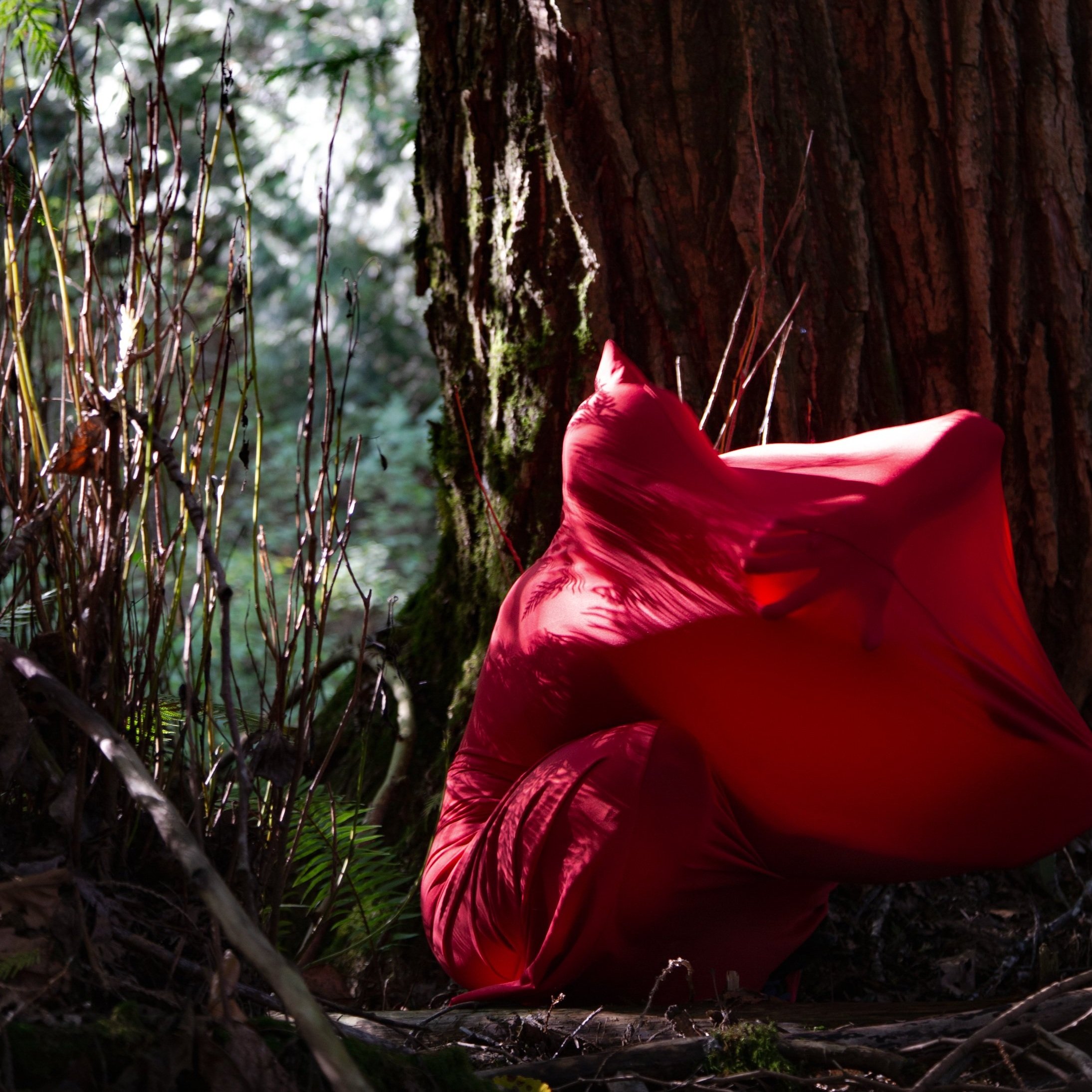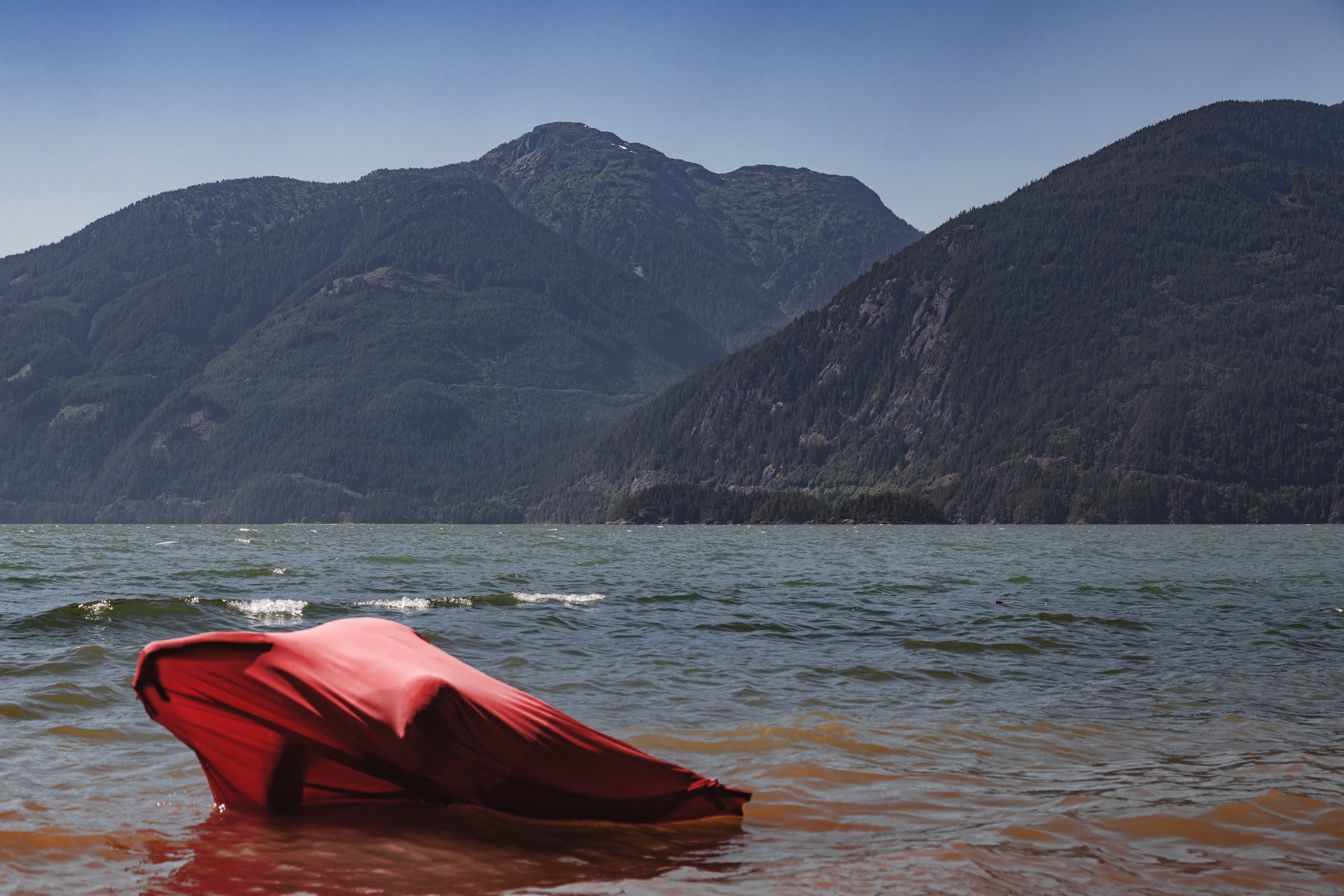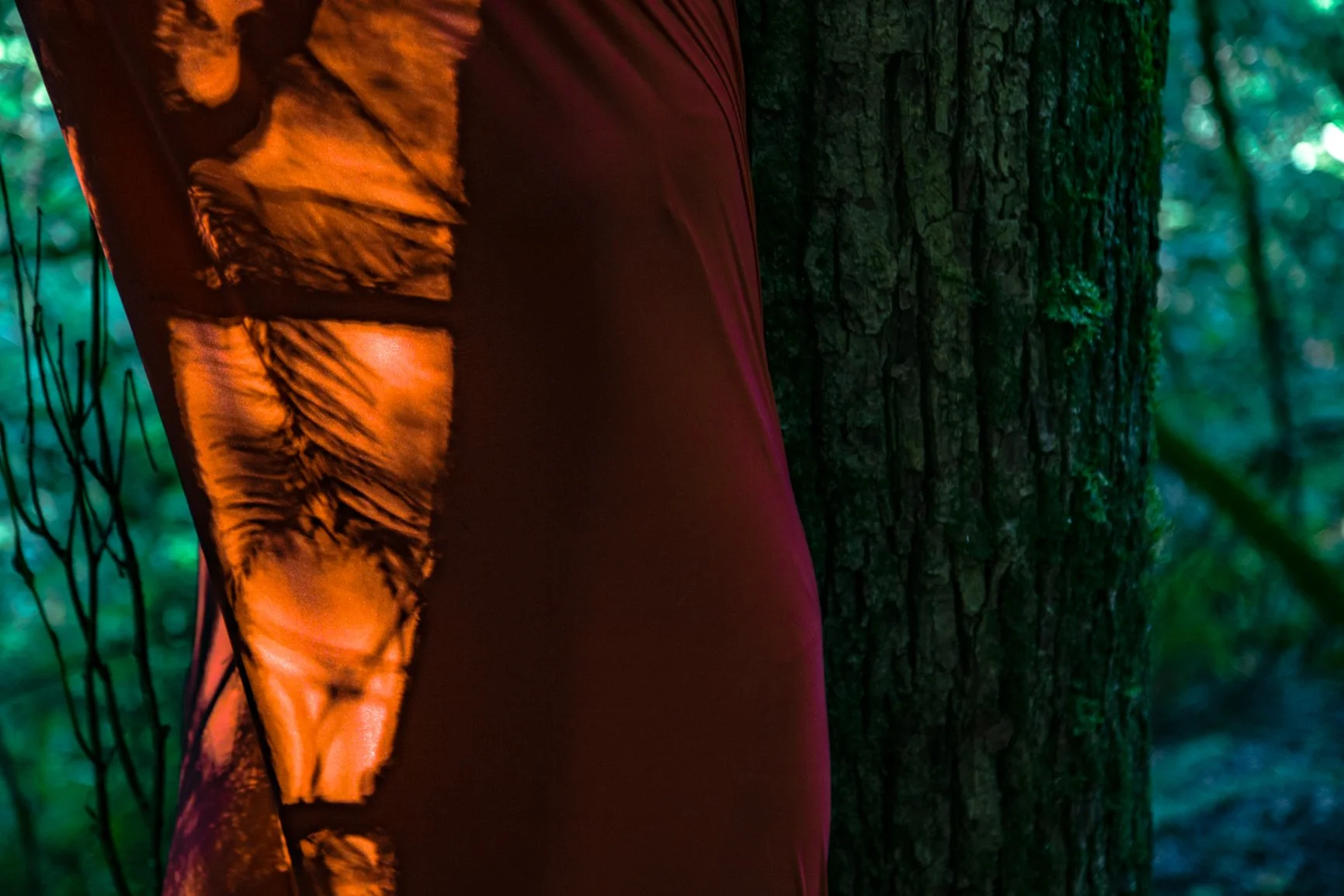
Body Sock
A photo series documenting my use of a body sock in my various environments.
Body sock activations over the last couple years




























The above editions were created the day after the 2024 US Presidential election. My red body sock took on a different aesthetic meaning and context once information changed. These photos are still about who gets to take up space where and who gets to have autonomy and move through the world without perception. But they are also about women and what we have always needed to do.



































When I am still, I cannot feel where I begin and end in space. My body does not send me signals, I lack proprioceptive input. Sometimes, when the air is the right temperature, and I sit still, I disappear. Movement provides me feedback so I sense myself; I am always rocking or swaying, stillness a threat, like I will dissolve into everything and nothing if I stop. I have never felt I fit in, but masked exceptionally well. It often left me feeling completely unseen amongst many. The forest was always a place I escaped as a child, and still, it is my most regulating environment.
My most recent Body Sock inhabitation was in Abbortsford, BC. (seen at top) During this performance I focused on finding the light in the dense forest, using my body and the sock to further try to become part of the forest, though I can never. The close contact with the trees, as well the attempt to occupy the light and shadow at once, had me feeling more animal, not just more in touch with my own body, but the spaces around me. For the first time we encountered others on our hike. I felt if I was still, maybe I could disappear, bright red or not.
In my second outdoor body sock inhabitation, I went to one of the most formative places of my childhood, Moseley Pines in Newburyport, Massachusetts. This land, and the nearly adjacent Maudsley State Park, were places of solitary exploration for me, full of magic and mystery, imagination and darkness during my middle school years. Many things happened to me in this park and re-walking the grounds with my family resurfaced a lot. My sock enabled me to occupy that imaginary space I created as a child, offering protection I didn’t always have then. It was an incredibly hot day, my feet sticky with sap, my children arguing around me but also wanting to participate, my husband behind the camera, my explanation and trust in his hands. It was a brief performance, my limits already stretched by the ground we were walking.
I am documented wearing my body sock first in Squamish, on the unceded territories of the xʷməθkʷəy̓əm (Musqueam), Sḵwx̱wú7mesh (Squamish), and səlilwətaɬ (Tsleil-Waututh) peoples, the original inhabitants of Vancouver and Squamish, attempting to situate myself in the landscape, knowing I can never feel like I belong, pushing against a tool made to calm my nervous system by providing the missing proprioceptive input. Like the knowledge of my neurodivergence, I didn’t get the sock until later in life after becoming a parent. It provides a safe space to be, and feel myself, but ensures I will stand out. Belonging has always been difficult for me; how I take up space has moved from surveying on high to threateningly prowling, to crumpled in heaps, to wisp of nothing, to whole and broken again and again. Now, armed with new knowledge of why I feel like I may disappear if I stop moving, how I work, I am choosing to embrace all the forms I can be, all the ways I can take up space, and see where I fit in.

